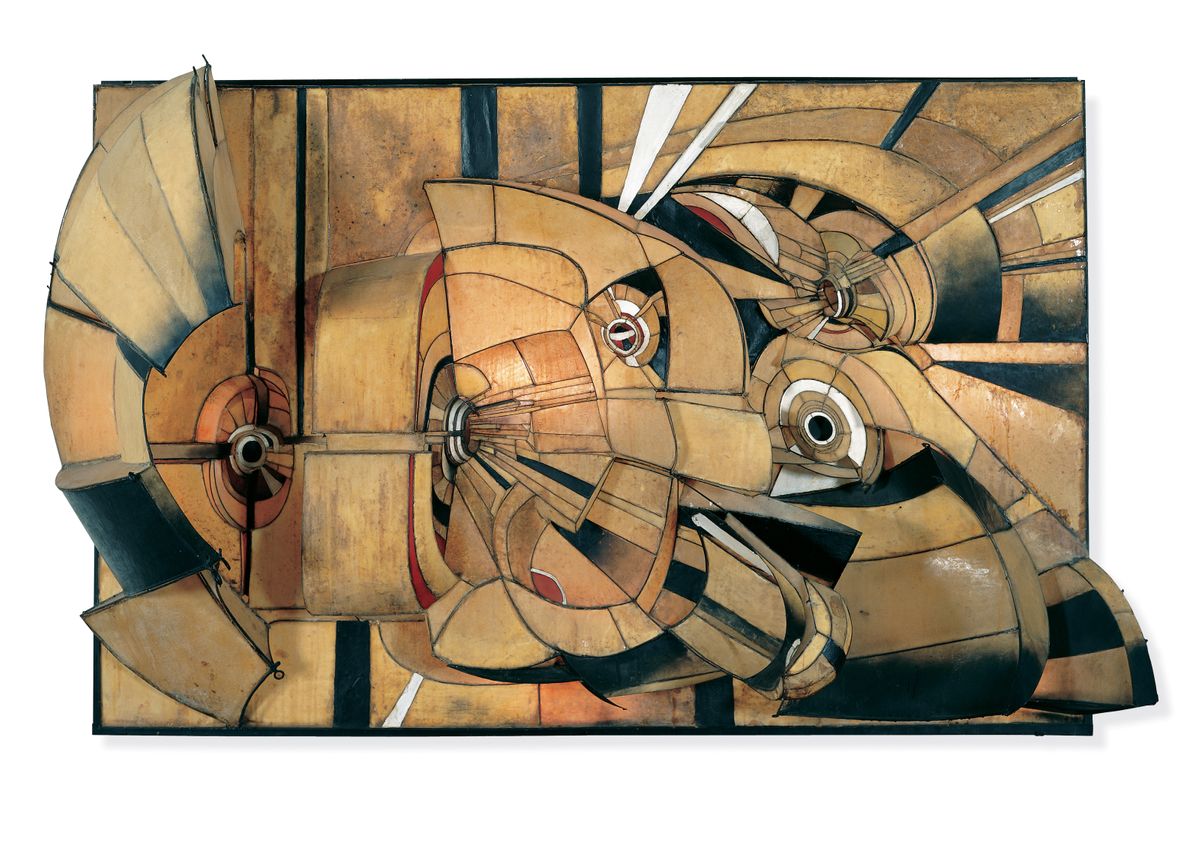The novelist attained fame with gripping works of eco-fiction. How hard could it be to rewild his own backyard?
Source: Best-Selling Author Jeff VanderMeer Finds That Nature Is Stranger Than Fiction | Audubon
The novelist attained fame with gripping works of eco-fiction. How hard could it be to rewild his own backyard?
Source: Best-Selling Author Jeff VanderMeer Finds That Nature Is Stranger Than Fiction | Audubon
It is still a glimpse into the future: Astronauts could be put into artificial hibernation and in this state be better protected from cosmic radiation. At present, there are already promising approaches to follow up such considerations. An international research team now has found decisive indications of the possible benefits of artificial hibernation for radiation resistance.
Source: Safety in space: Synthetic hibernation could provide protection from cosmic radiation — ScienceDaily
[He is] that beautiful white Christ which seems to be coming out of Russia … [One] of the most perfect lives I have come across in my own experience.—Oscar Wilde…View Post
Source: The Ants Have Not Read Kant: Pëtr Kropotkin and Mutual Aid – Areo
Kropotkin’s observations in Siberia had drawn him to a startling and dramatic conclusion: mutual aid was not only common, but “of the greatest importance for the maintenance of life, the preservation of each species, and its further evolution.” Soon, he would be describing mutual aid as a biological law, particularily after he read a lecture on mutual aid that Karl Kessler, dean of the University of Saint Petersburg, had presented to the Congress of Naturalists.
Kropotkin’s time in Siberia turned him into not only an evolutionary biologist but also a full-fledged anarchist. “I lost in Siberia,” he would write, “whatever faith in state discipline I had cherished before. I was prepared to become an anarchist.” Kropotkin’s anarchist philosophy developed naturally from his work on evolution and mutual aid in animals. Anarchism argues that no centralized government is necessary for people to lead happy, just and equitable lives. The mutual aid that Kropotkin saw among the animals of Siberia led him to that same conclusion. He came to believe that mutual aid had deep biological roots because animals engaged in it despite the absence of anything remotely like a government. The process of natural selection had favoured mutual aid in animal populations: anarchy, Kropotkin writes, was “a mere summing-up of … the next phase of evolution. It is no longer a matter of faith; it is a matter for scientific discussion.” And since animals cooperated in the absence of government, it seemed to Kropotkin impossible that humans could not find a way to break free of government shackles.
Jay Samit’s watercolors at the Richard Taittinger Gallery on Ludlow, is several kinds of trip, time travel into our Pop art past

I fell in love with Bontacou’s work in 2004 when I saw a retrospective at MOMA. She died yesterday at age 91. What a life she had. Some quotes from a couple of nice articles about her below.
And though, Bontecou’s art may have directly referenced the world as she saw it around her, she never wanted to strictly define what it was about. That was up to the viewer. As she told the Chicago Reader when asked, “Do people ever ask you, ‘What does this mean?’ What do you say?”, she coolly replied, “I don’t answer at all. It’s what you see in it. What I see in it is something else. I don’t get caught up in that.”
Although Bontecou generally avoided discussing the meaning of her images, in a rare statement for the catalogue of the Museum of Modern Art exhibition “Americans 1963,” she suggested that her goal was to “build things that express our relation to this country—to other countries—to this world-to other worlds-in terms of myself.”5 The precise meaning of this relationship was explained only years later when Bontecou admitted that the iconography of these early projects was in part political, a response to the menacing specter of war and global destruction that she felt in the early ’60s.6
Beautiful work.
Matt Roussel carves intricate strokes into wood engravings of surreal flora and fauna and transforms them into paintings.
Source: Crows able to understand the concept of recursion
In this new effort, the research team conducted similar experiments with crows that show that they, too, have the cognitive ability to understand recursion.
The experiments by both teams involved training test subjects to choose bracket pairs in a sentence made of symbols—choosing the parentheses in the sentence {()}, for example. Once the crows got the idea, the researchers then created longer sentences to see if the test subjects could still pick out the ones that were embedded. As with the monkeys, the researchers found that the test subjects could pick out the embedded characters in numbers that were greater than chance would allow.